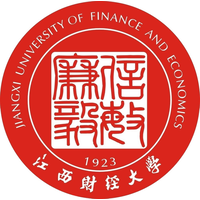Nanchang Institute of Technology is a regular institution of higher learning co-constructed by the central and local governments and subject to the administration by local government. It is formerly known as Jiangxi Institute of Water Conservancy and Electric Power founded in 1958, and was renamed Nanchang Institute of Technology in 2004. It was approved the right to award bachelor's degree in 2005, realized co-construction by People's Government of Jiangxi Province and the Ministry of Water Resources in 2008, was approved as an “Excellent Engineer Education Program” higher institution by the Ministry of Education in September 2011 and the right to award master’s degree by the Academic Degree Committee of the State Council in October 2011. In December of the same year, Nanchang Institute of Technology was qualified in the undergraduate level teaching appraisal organized by the Ministry of Education. Nanchang Institute of Technology was approved as pilot institution for oriented cultivation and direct recruitment of petty officers in 2013. Through years of development, NIT has become an application-oriented engineering institution with distinctive hydraulic features dominated by engineering and multi-disciplinary coordinated development of management, liberal arts, fine arts, economics, science and agriculture. NIT is located in a famous historical and cultural city, “the place where army flag rises”—Nanchang City, the capital city of Jiangxi Province. It possesses such two campuses as Yaohu and Pengjiaqiao, covering a land area of 2,046.9mu, with a school house of over 650 thousand m2, it possesses various kinds of instrument and equipment for teaching and scientific research, with a total value of 178 million yuan. There are 1,311,400 collections of paper books and 1.86 million electronic books in the library. The institute now over 1,300 faculty and staff including 891 full time teachers among whom there are 294 persons possessing the professional title of associate professor and above, accounting for 33% and 737 teachers with doctoral degree or master degree, occupying 82.72%. The Institute has 1 candidate for national “new century millions of talents project”, 1 state-level middle-young aged expert with outstanding contribution, 4 experts enjoying special allowance from the State Council and Provincial Government, 8 second-level professors, 5 candidates for “Ganpo Elites 555 Talent Project”, 11 young and middle aged academic leaders of provincial universities and colleges, 27 middle-young aged backbone teachers of provincial universities and colleges, 19 candidates for “new century millions of talents project”, 3 training objects for provincial young scientists and 6 provincial famous teachers. The Institute consists of 15 schools (faculties), including School of Hydraulic and Ecological Engineering, School of Civil and Architectural Engineering, School of Mechanical and Electrical Engineering, School of Information Engineering, School of Business Administration, School of Economics and Trade, School of Humanities and Art, School of Science, School of Foreign Languages, School of International Education, School of Marxism, Faculty of Physical Education, School of Military Education, Yaohu School and School of Continuing Education, having 51 undergraduate majors and 14 junior college majors, recruiting postgraduates of specialized degree in engineering in two fields. Among undergraduate majors, there are 1 national characteristic major, 6 Ministry of Education “excellent program” majors, 7 provincial-level characteristic majors, 6 provincial-level “excellent program” majors, 2 international cooperative education majors and 3 majors for the recruitment of first batch of undergraduate program. NIT now has 17,691 full-time in-school students, including 149 postgraduate students, 14,446 undergraduate students and 3,096 junior college students, and it also has 6,123 students subject to correspondence study. The Institute possesses 1 state-level university science park, 1 national-local joint engineering lab, 1 coordinated innovation center of Jiangxi Province in 2011, 6 major disciplines of the “12th five-year plan” of provincial higher institution, 4 Jiangxi provincial key labs, 2 engineering research centers, 1 key research base of humanities and social sciences, 1 soft science research base, 1 key lab of higher institution, 1 postdoctoral innovation practice base, 1 Jiangxi provincial advantageous scientific innovation team, 1 higher institution scientific research innovation team, 5 Jiangxi provincial experimental teaching model centers, 5 provincial teaching teams and 5 provincial major comprehensive reform pilot projects. Since 2004, the Institute has 2 second prizes for national teaching achievements, 16 provincial teaching achievement awards and 22 provincial natural science awards, science and technology progress award and social sciences excellent achievement awards. In recent five years, NIT has been approved 68 national natural sciences foundation projects, 10 national social sciences foundation projects, 8 humanities and social sciences projects of Ministry of Education, and 679 various kinds of provincial scientific research projects like Jiangxi provincial natural sciences foundation projects, social sciences planning projects, and so on. NIT follows the motto of “self-improvement and thoughtcast”, adheres to the school-running concept of “focusing on water science, creating application-oriented type”, advocates the style of “pioneer, diligence, factualism and civilization”, having cultivates over 100 thousand high-quality application-oriented talents for local and water conservancy industry, made active contributions to the development of economic society and water conservancy industry, and won favorable social reputation. According to Evaluation Research Report of Universities in China in 2016 of Airuishen China Alumni Association Website, NIT ranks the 375th place among the rankings of higher institutions in China in 2016.
Show less
_1.png?auto=format,enhance,redeye,compress,true)
_2.png?auto=format,enhance,redeye,compress,true)
_3.png?auto=format,enhance,redeye,compress,true)
_4.png?auto=format,enhance,redeye,compress,true)
_5.png?auto=format,enhance,redeye,compress,true)
.png)
.png)

.png)






